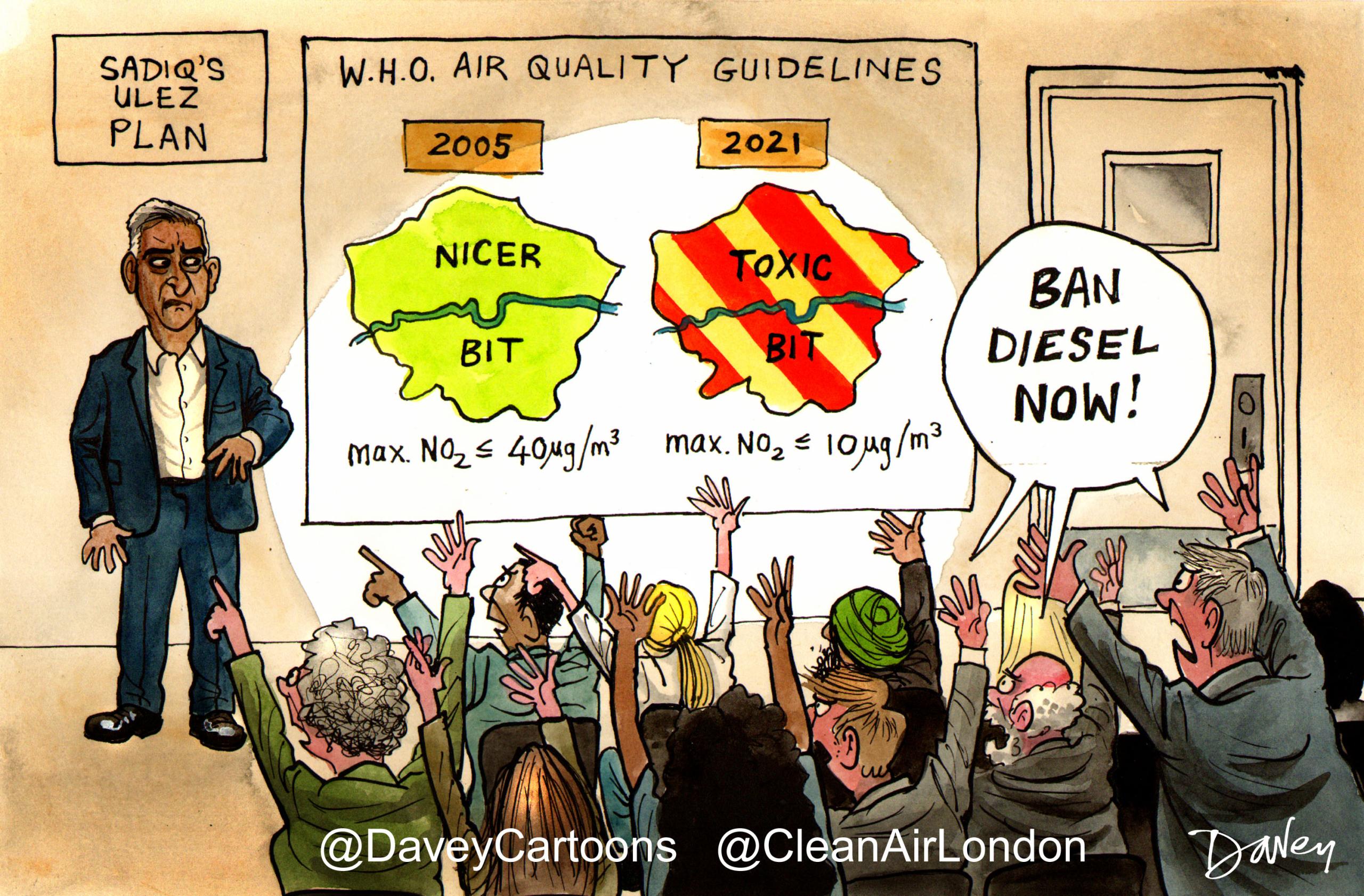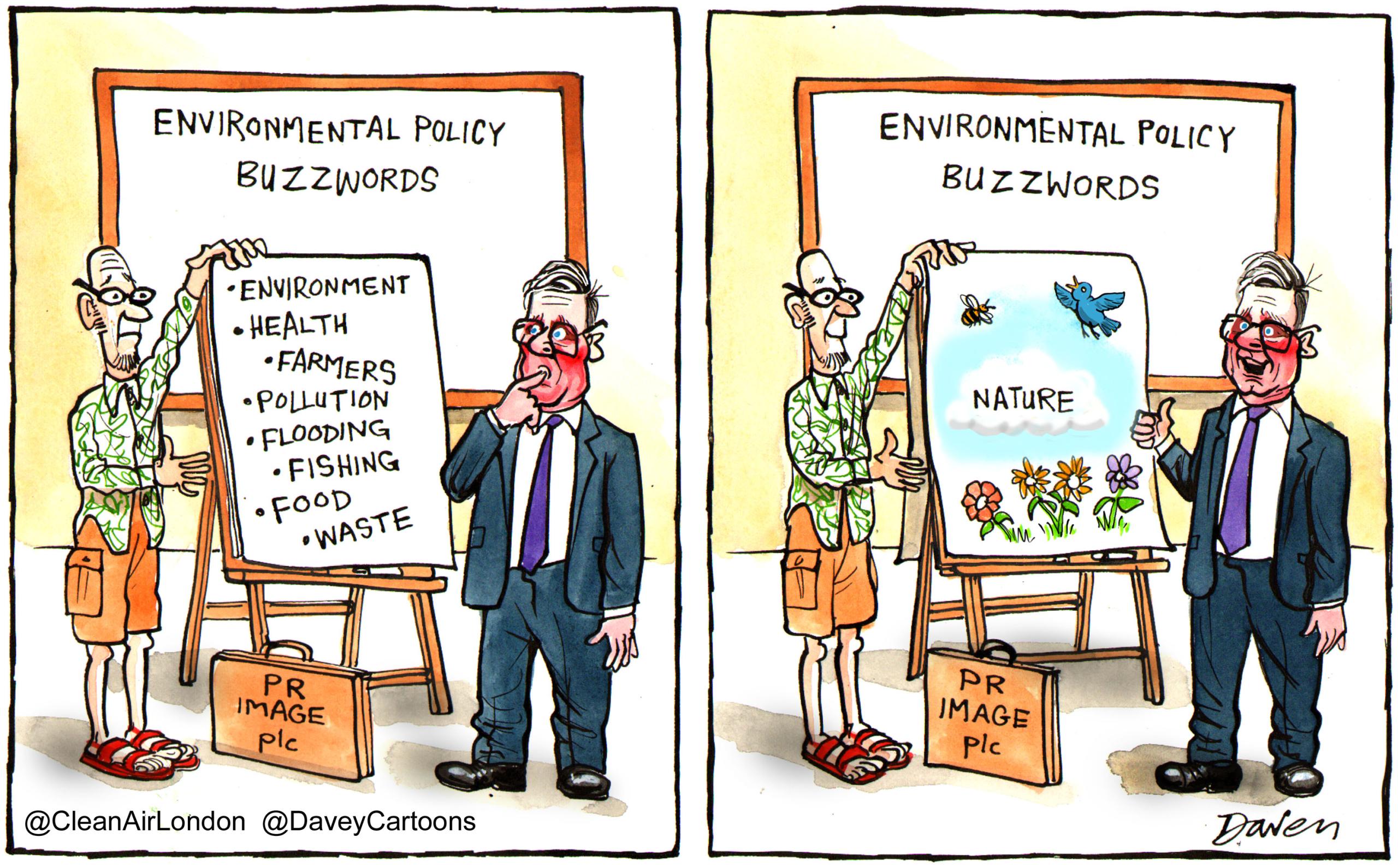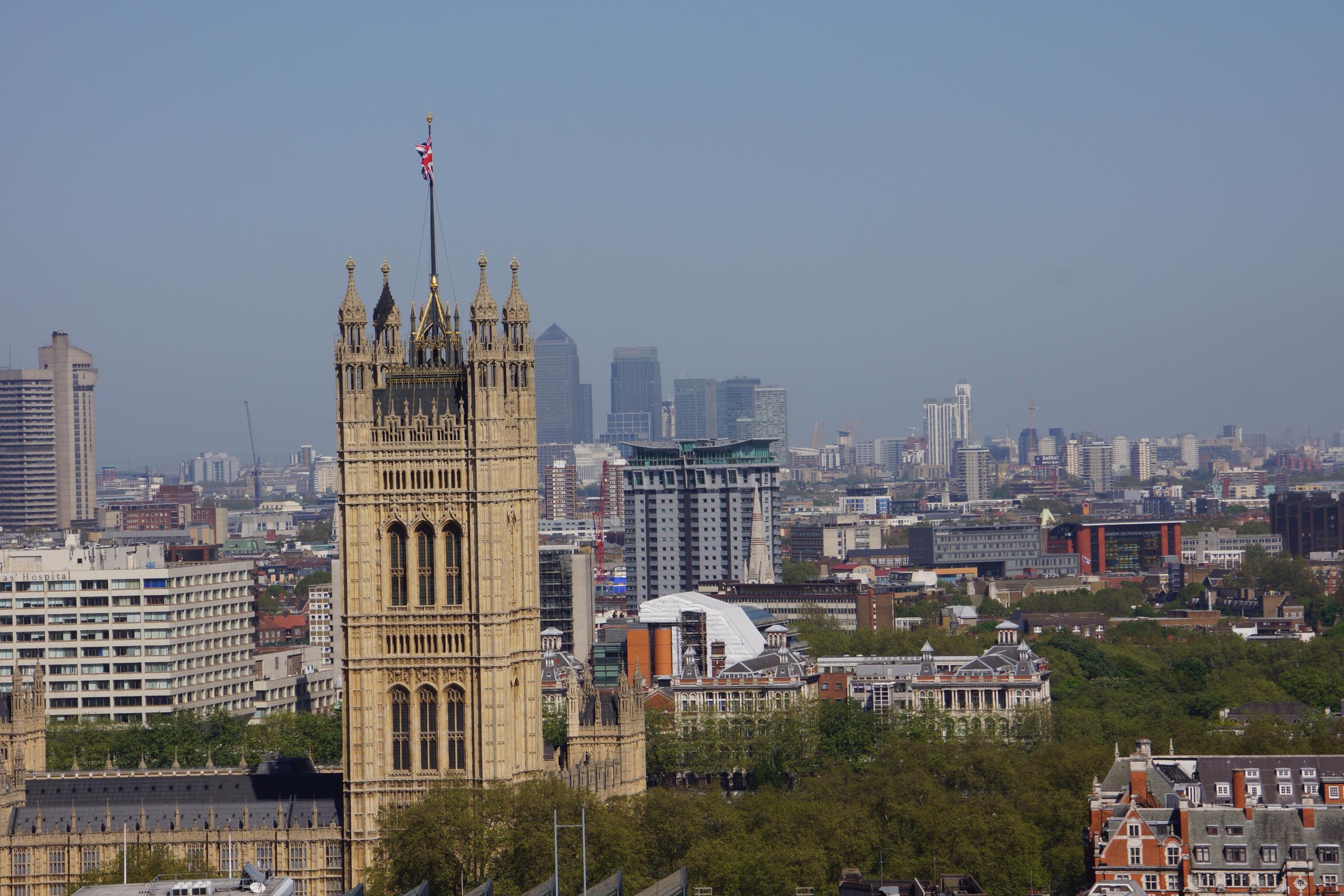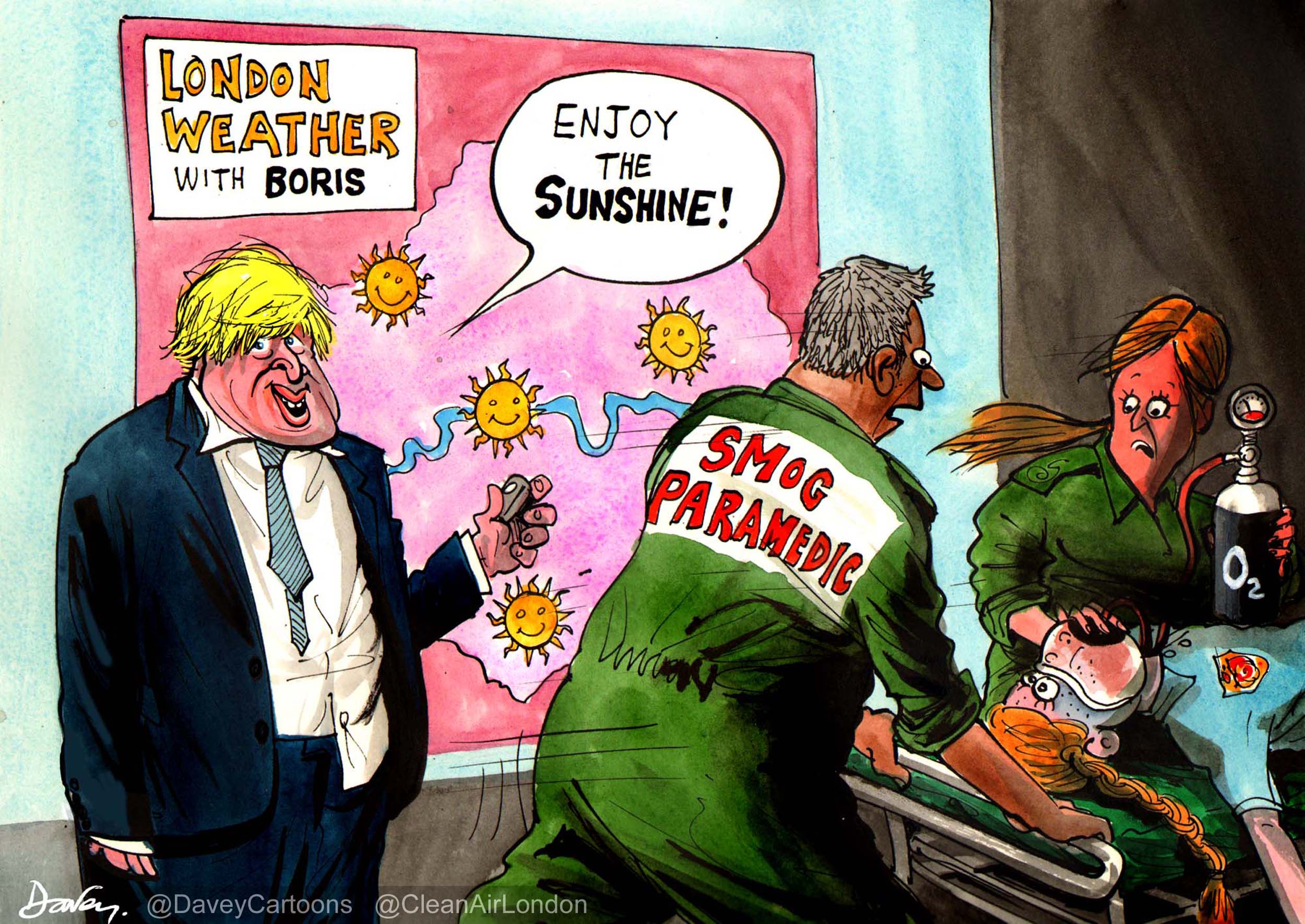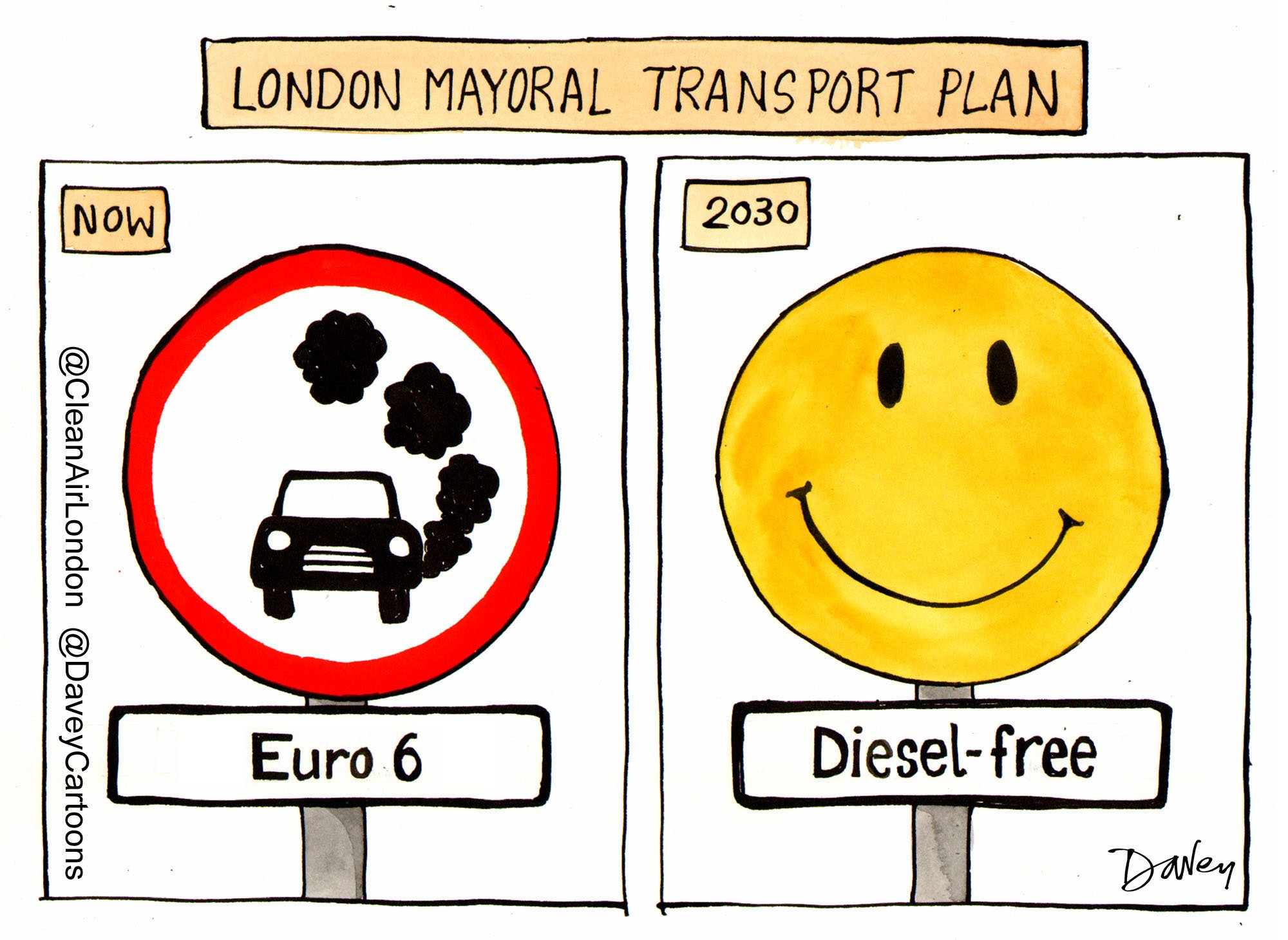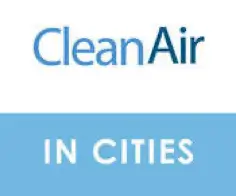The Rt. Hon. Ruth Kelly MP
Secretary of State for Transport Department for Transport
Great Minster House
76 Marsham Street
London SW1P 4DR
By email to: [email protected]
13 September 2008
Dear Secretary of State
Euro VI emission limits for heavy duty vehicles: ‘The London Principle’ should be used to guide decisions on trade-offs between air quality and climate change
This response to the Department for Transport’s (DfT’s) public consultation on the European Commission’s (EC’s) proposals for a new European Regulation setting emission standards for heavy duty vehicles (Euro VI), which is due to close on 17 September 2008, is sent on behalf of the Campaign for Clean Air in London (CCAL).
CCAL would not normally comment on a consultation by the DfT about Euro emission standards but we consider that this consultation raises vitally important questions, the answers to which can set a powerful framework for all aspects of the difficult and important trade-offs that will be necessary in coming years between climate change and air quality matters (and vice versa).
The Campaign for Clean Air in London
CCAL has only one aim which is to achieve urgently and sustainably at least World Health Organisation (WHO) recommended standards of air quality throughout London. Our immediate priority is to ensure that air quality laws, based on WHO recommendations for particulate matter (so called PM10) and nitrogen dioxide (NO2), established by the new European Union directive on ambient air quality and cleaner air for Europe are rigorously enforced in each of the next four years leading up to the London 2012 Olympic and Paralympic Games.
CCAL has received support from Mayor Johnson, leading politicians from the four main political parties in London as well as leading business and community groups including the Central London Partnership, London First and The Knightsbridge Business Group. We have also received a pledge of support from Environmental Protection UK (formerly the National Society for Clean Air and Environmental Protection). Our campaign website is shown in the letterhead above.
‘The London Principle’ (or perhaps ‘The Air Pollution Trade-off Principle’)
Tackling air pollution holistically requires difficult trade-off decisions between air quality and climate change issues. CCAL encourages policy makers, like the DfT, to accept a disbenefit of say 5% in climate change terms provided there is an associated benefit of say 50% in air quality terms (and vice versa) i.e. one to 10. Such an approach should be considered acceptable since large benefits may be hard to find and small disbenefits can be rectified relatively easily through a combination of other policy measures. An example of the former would be slightly increased fuel consumption and emissions of carbon dioxide while an example of the latter would be sharply reduced hazardous emissions.
The European Commission’s Proposals
CCAL has the following key comments on the government’s view on the EC’s proposals for a new European Regulation setting emission standards for heavy duty vehicles (Euro VI):
General – The government is right to be supportive of the aims of the EC’s proposal.
Air quality/Climate change trade-offs – The EC’s proposals offer substantial benefits in air quality terms for small disbenefits in climate change terms. CCAL believes that the fuel consumption penalty of between two and three percent indicated by the EC is more accurate than the eight percent indicated by independent advice commissioned by the government. CCAL believes that the European Environmental Bureau, the International Council on Clean Transportation in the US or others would be able to confirm the more favourable picture.
However, even if the government’s advice turns out to be correct (which CCAL doubts), the EC’s proposals would still be fully consistent with ‘The London Principle’ e.g. an 80% reduction in oxides of nitrogen and a 67% reduction in particulate matter emissions limits by comparison with the Euro V standards they would replace (i.e. about 10 units of improvement to air quality for one unit of fuel consumption disbenefit). Of course, the EC’s proposals have the additional benefit of tackling harmful emissions at their source and ensuring the polluter pays directly.
Setting global standards for technology – CCAL supports the EC’s proposal to bring the requirements in line with the United States (US) Environmental Protection Agency 2010 limits. It is clearly right to seek cost efficiencies through global standardisation and economies of scale. CCAL urges the government not to jeopardise essential, and clearly deliverable (i.e. if the US has the technology standard already planned there is no excuse for delay in Europe), technological improvements by suggesting that mainstream policy should cater for remote or unlikely events e.g. by being overcautious with its assumptions on offsetting improvements. Otherwise, the government would drive industry towards the lowest standards not the highest.
Implementation timetable – CCAL urges the government to press for the earliest possible adoption of the EC’s proposals for a new European Regulation setting emissions standards for heavy duty vehicles (Euro VI). A fast timetable is needed to aid compliance with air quality laws across Europe. It should be possible if: US 2010-like limits are adopted; and the approach of using Regulation rather than a new Directive is pursued to save time and increase certainty. There must be no unnecessary delay in the implementation of the EC’s proposals.
Financial incentives – CCAL acknowledges the government’s long opposition to the principle of including provisions on fiscal matters in Article 95 (Qualified Majority Voting) proposals, rather than proposals requiring unanimity. However, CCAL considers that the government should accept the opportunity to offer financial incentives on a case by case basis. First, the government would gain an option not lose one and second, financial incentives are clearly positive not negative per se to the citizen’s tax burden. For both reasons, CCAL considers that the government should support the EC’s proposals for financial incentives and plan to use them actively to achieve quickly substantial and much needed environmental benefits.
Summary
If the EC’s proposals are not supported fully by the UK government, it will be necessary for less efficient measures to be found to ensure compliance with air quality laws (e.g. the banning from our larger cities of a higher proportion of older diesel vehicles than would otherwise by necessary). In this context, it would be irresponsible of the government to do anything other than support fully or strengthen further the proposals from the EC to reduce sharply hazardous emissions.
CCAL supports fully the detailed response being submitted by Environmental Protection UK. CCAL would be pleased to discuss or expand on any aspect of this letter if you or your officials consider it worthwhile. We can be contacted at the email address provided separately.
Finally, thank you for taking seriously our concerns about air pollution in London and giving the issues we raise your particular attention.
Please acknowledge receipt of this letter.
With best wishes.
Yours sincerely
Simon Birkett
Principal Contact
Campaign for Clean Air in London
By hand:
Winston Fletcher, Chair, The Knightsbridge Association
Carol Seymour-Newton, Honorary Secretary, The Knightsbridge Association
Cc:
Commission Vice-President Guenter Verheugen
Commissioner Stavros Dimas
The Rt. Hon. Hilary Benn MP, Secretary of State for Defra
Boris Johnson, Mayor of London Sir Simon Milton, Deputy Mayor
ORGANISATIONS
Helen Ainsworth, EU and International Air Quality, Defra
Jenny Bates, London Regional Campaigns Co-ordinator, Friends of the Earth
James Bidwell, Chief Executive, Visit London
John Brewster OBE, Chairman, Port Health and Environmental Services Committee, Corporation of London
Patricia Brown, Chief Executive, Central London Partnership
Simon Davies, Department for Transport
Nick Fairholm, Transport for London
David Higgins, Chief Executive, Olympic Delivery Authority
Tim Hockney, Executive Director, London First
Professor Frank Kelly, Kings College London
Dr Michal Krzyzanowksi, Regional Adviser, Air Quality and Health, WHO
Sarah Legge, GLA Principal Policy Adviser – Air Quality
Blake Ludwig, Campaign Director, Alliance Against Urban 4x4s
Professor Bob Maynard, Health Protection Agency
Philip Mulligan, Chief Executive, Environmental Protection UK
Derek Picot, Chairman, The Knightsbridge Business Group
Dragomira Raeva, EU Policy Unit, European Environmental Bureau
Dr Martin Williams, Head of Air and Environment Quality Division, Defra
Tim Williamson, National Air Quality Assessment, Defra
LEADING POLITICIANS
John Bowis MEP, Conservative
Jean Lambert MEP, Green
Baroness Ludford MEP, Liberal Democrat
Claude Moraes MEP, Labour
Richard Barnes AM, Statutory Deputy Mayor and Leader of the Conservative Group
Len Duvall AM, Leader of the Labour Group, London Assembly
Darren Johnson AM, Green, Chair of the Transport and Environment Committee
Mike Tuffrey AM, Leader of the Liberal Democrat Group, London Assembly
Valerie Shawcross AM, Chair of the Transport Committee, London Assembly
Tim Hockney, Executive Director, Transport, London First
Councillor Colin Barrow, Leader of the Council, City of Westminster
Councillor Merrick Cockell, Leader of Kensington and Chelsea Council

